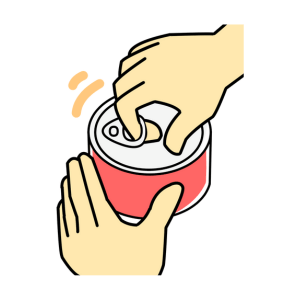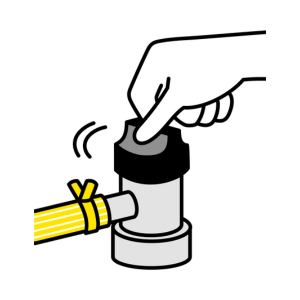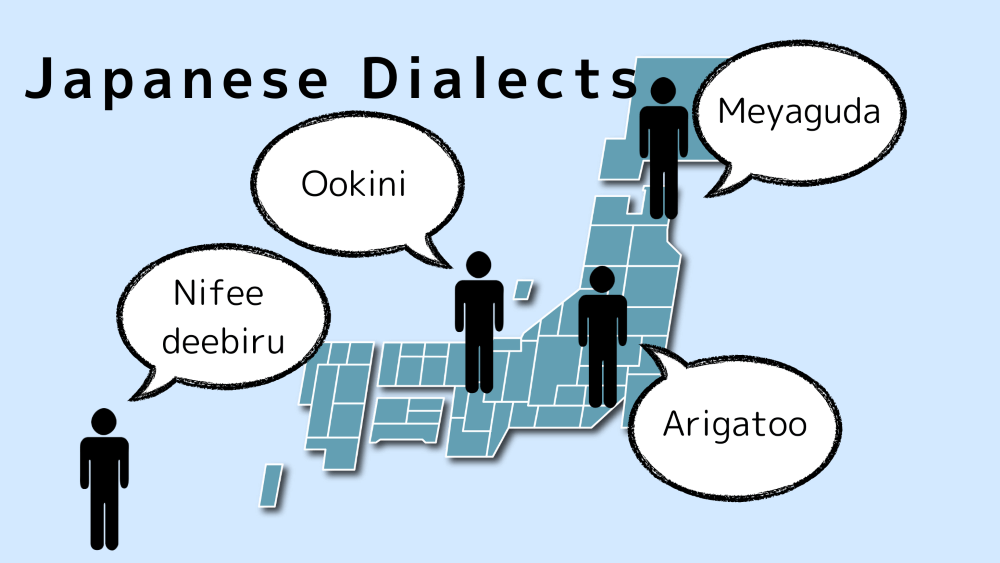In Japanese, some verbs are quite similar but have slightly different meanings and usages. For example, differentiating “ひらく” (hiraku), “あける” (akeru), “あく” (aku), and “とじる” (tojiru), “しめる” (shimeru), “しまる” (shimaru) can be a bit tricky for Japanese learners. Today, we’ll explain their differences with example sentences!
Differences Between “Akeru,” “Hiraku,” “Aku”
Comparison Table
| Verb | Type | Target | Meaning |
|---|---|---|---|
| 開く (ひらく) | Transitive / Intransitive | Books, umbrellas, etc. | Opening something that is closed or folded. |
| 開ける (あける) | Transitive | Lids, locks, curtains, etc. | Opening something that is sealed, covered or locked.Sliding to open. |
| 開く (あく) | Intransitive | Stores, doors, etc. | Automatically opening or being opened by some action. |
Explanation and Example Sentences
開く – Hiraku

“Hiraku” conveys the image of something spreading out or unfolding in a broader. It is the opposite of “tojiru” (to close) and usually refers to an opening that can be reversed to its original state.
Examples:
- 本を開いてください。- Please open the book.
- ドアを開いて待っていてください。- Open the door and wait.
- 今朝、花が開きました。- This morning, the flowers bloomed.
開ける – Akeru

“Akeru” refers to removing something that covers or blocks. It can be used even if the object cannot return to its original state (e.g., a lid of a can). We also use this verb to open objects by sliding.
Examples:
- 瓶の蓋を開けてくれますか?- Can you please open the bottle?
- 暑いので窓を開けてください。- Please open the window, it’s hot.
- 朝起きたらカーテンを開けます。- I open the curtains when I wake up.
開く (あく)

This verb “aku” refers to something opening on its own, or becoming open due to some external force (e.g., a person or machine). It implies a state where one can freely enter or exit.
Examples:
- 8時に店が開きます。- The store opens at 8:00.
- 風でドアが開きました。- The door opened because of the wind.
- ボタンを押せば鍵が開きます。- The lock will open if you press the button.
Notes
- Depending on the context, different verbs may be applied. For example, you use “akeru” to open a door by yourself but “aku” or “hiraku” if it’s an automatic door.
- In some cases, two or more verbs may have nearly the same meaning. For example, “目をひらく” and “目をあける” both mean ‘to open one’s eyes.
- There are also abstract uses that don’t fit into the examples above, such as “会議をひらく” (hold a meeting) or “心をひらく” (open one’s heart).
Differences Between “Tojiru,” “Shimeru,” “Shimaru”
Comparison Table
| Verb | Type | Target | Meaning |
|---|---|---|---|
| 閉じる (とじる) | Transitive/ Intransitive | Books, eyes, umbrellas, etc. | Closing or folding something that is open. |
| 閉める (しめる) | Transitive | Bags, locks, windows, etc. | Closing something that is unlocked, uncovered or blocking a space. Sliding to close. |
| 閉まる (しまる) | Intransitive | Doors, windows, lids, etc. | Automatically closing or being closed by some action. |
Explanation and Example Sentences
閉じる (とじる)

“Tojiru” refers to closing something that is open or expanded. It is the opposite action of “hiraku (to open) and normally indicates something that can be reopened later.
Examples:
- 本を閉じてください。- Please close the book.
- 雨が止んだので傘を閉じました。- I closed the umbrella when the rain stopped.
- 目を閉じたら寝られますよ。- You can sleep if you close your eyes.
閉める (しめる)

“Shimeru” refers to intentionally closing something that was open or blocking an entrance or space. It can also mean sliding something shut, like curtains.
Examples:
- 家を出るときは鍵を閉めてください。- Please lock the door when you leave.
- 寝る前にカーテンを閉めました。- I closed the curtains before going to bed.
- ゴミ袋は閉めてから外に出しましょう。 Don’t forget to close the rubbish bag before taking it out.
閉まる (しまる)

“Shimaru” describes something closing automatically, or being closed by external forces such as a person or machine, resulting in something being blocked or unable to pass through.
Examples:
- 自動ドアが閉まるので気を付けてください。- Be careful, the automatic door will close.
- 強い風で窓が閉まりました。- The window closed because of the strong wind.
- お店は10時に閉まります。- The store closes at 10:00.
Notes
- Depending on the context, different verbs may be applied. For instance, you must use “shimeru” if you close the door by hand, but you say “shimaru” if it’s an automatic door. Some might also use “tojiru” if it’s a hinged door.
- Like with “open,” there are abstract uses that don’t fit the typical examples, such as “話を閉じる” (end a conversation) or “心を閉じる” (close one’s heart).
As you can see, the verbs “hiraku,” “akeru,” “aku,” and “tojiru” “shimeru,” “shimaru” differ in grammatical classification and the kind of actions they describe. Understanding these differences will help you use Japanese more naturally and effectively!


